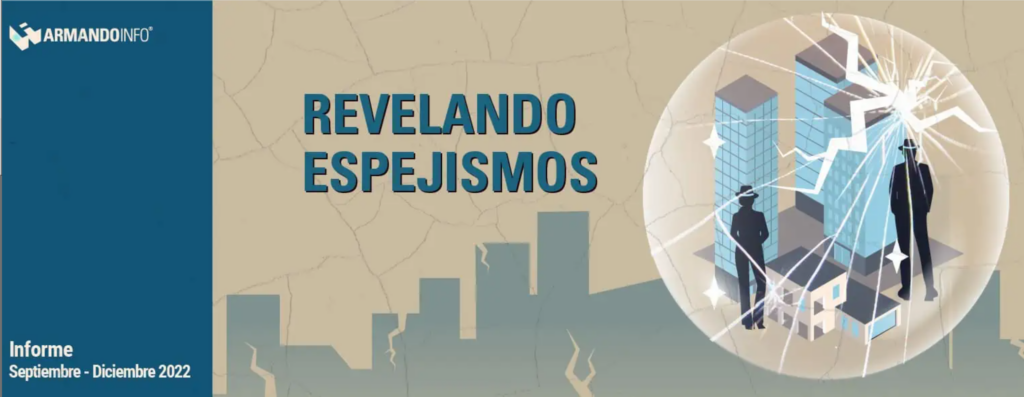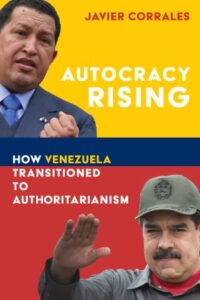 As legacy news outlets close due to government pressure, Venezuela’s independent news sites keep reporting despite legislation and internet blockages, analyst Gretel Kahn writes for Oxford University’s Reuters Institute:
As legacy news outlets close due to government pressure, Venezuela’s independent news sites keep reporting despite legislation and internet blockages, analyst Gretel Kahn writes for Oxford University’s Reuters Institute:
News sites like El Pitazo, Efecto Cocuyo, Armando.info and Runrun were founded by veteran Venezuelan journalists as an alternative to print journalism in a declining media space. A number of traditional media outlets, including newspapers that could not maintain their printed editions like El Nacional or Tal Cual, also transformed to digital-only offerings. …
“Digital media emerged not so much because we wanted to be in the digital modernity, but because we need to continue doing journalism,” says Patricia Marcano, editorial coordinator at Armando.info. For Luz Mely Reyes, co-founder of Efecto Cocuyo, the transition to digital media in the country was also a “forced migration” to the digital space.
 “The space for independent work has been shrinking,” says Andrés Cañizález, the editor of fact-checking site Cotejo and the director of Mediánalisis. “Independent journalism is always under threat. It is always questioned by those in power, but that space is maintained.” RTWT
“The space for independent work has been shrinking,” says Andrés Cañizález, the editor of fact-checking site Cotejo and the director of Mediánalisis. “Independent journalism is always under threat. It is always questioned by those in power, but that space is maintained.” RTWT
 As Nicolas Maduro approaches the tenth anniversary of his accession to Venezuela’s presidency on March 8, he remains very much in control, using both old-fashioned repression and more modern techniques such as AI-generated media content, The FT reports. Washington and Brussels hope that the carrots of more sanctions relief and greater international legitimacy will encourage Maduro into conceding enough reform to give the opposition a shot at winning next year’s presidential election. Few are optimistic this will succeed, but even fewer see an alternative:
As Nicolas Maduro approaches the tenth anniversary of his accession to Venezuela’s presidency on March 8, he remains very much in control, using both old-fashioned repression and more modern techniques such as AI-generated media content, The FT reports. Washington and Brussels hope that the carrots of more sanctions relief and greater international legitimacy will encourage Maduro into conceding enough reform to give the opposition a shot at winning next year’s presidential election. Few are optimistic this will succeed, but even fewer see an alternative:
“The ideal scenario would be that Maduro and his inner circle were offered a ‘golden bridge’ to leave the country or even remain in Venezuela without being pursued, in exchange for clean elections and some guarantees of political participation for the losers,” says former Colombian president Juan Manuel Santos. “But the most probable scenario is that Maduro negotiates a few reforms . . . and then holds managed elections, which he wins.”
How Venezuela’s Nicolás Maduro outfoxed the west https://t.co/SX1uXDtMgB
— Democracy Digest (@demdigest) March 14, 2023
Whether he stays in power or concedes, Venezuela has changed, The FT adds.
“Even if Maduro were to get on a plane and take 40 of his worst guys with him, the problems in Venezuela are almost unmanageable,” said Pedro Burelli, a former board member of state oil company PDVSA. “You have the [Colombian] ELN and Farc guerrillas, the illegal miners, the drug traffickers and the untrustworthy, criminalised state security apparatus. The country is absolutely screwed up.”
“The main interest in an authoritarian context is.. the survival of the media ecosystem that allows independent journalism,” said @LuzMelyReyes, co-founder of @EfectoCocuyo & #AlianzaProPeriodismo in #Venezuela, @gretelkahn writes for @risj_oxford. https://t.co/njG9UzuSgB
— Democracy Digest (@demdigest) March 14, 2023







